Portrait of Hon. Dr. William F. Roberts who presided over New Brunswick during the influenza pandemic of 1918.
Source: P107-1: Department of Health photographs.
The Honorable William F. Roberts, M.D. was born in Saint John on 18 December 1869 to Hannah Porter and John Roberts (RS141-C5: Index to Death Certificates, PANB's Vital Statistics from Government Records). Best known as the first Minister of Health in the British Empire, Roberts was a strong advocate for public health reform (Stewart, Medicine in New Brunswick, 118).
He studied at the University of New Brunswick and Bellevue Hospital, under Professor Dr. Herman M. Biggs, in New York. Following his academic career, he worked as a medical doctor for forty-four years. Before branching out into politics, he served as Saint John’s city coroner (Stewart, Medicine in New Brunswick, 118). A respected doctor and active member of his community, Roberts ran with the Liberals in the provincial election of 1917. Before successfully advocating for a Department of Health through the Public Health Act, Roberts was a Minister Without Portfolio (Doyle, Front Benches & Back Rooms, 141). Roberts supported both Prohibition and female suffrage.
Among his chief achievements were his handling of the Spanish influenza and the near eradication of smallpox by instituting mandatory vaccinations. He eventually lost re-election in 1925 after angering the province’s dairy community over the forced pasteurization of milk that resulted in increased prices (Stewart, Medicine in New Brunswick, 119; Doyle, Front Benches & Back Rooms, 251). On 10 February 1938, William F. Roberts died in Saint John at 68 years old (RS141-C5: Index to Death Certificates, PANB's Vital Statistics from Government Records).
Although some of Roberts’s stances and changes sparked backlash, contemporaries and historians alike have praised his commitment to public service that ultimately saved thousands of New Brunswick lives.

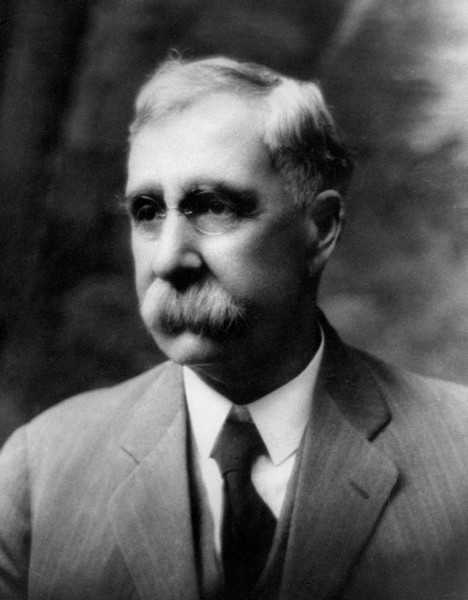
.jpg)
.jpg)
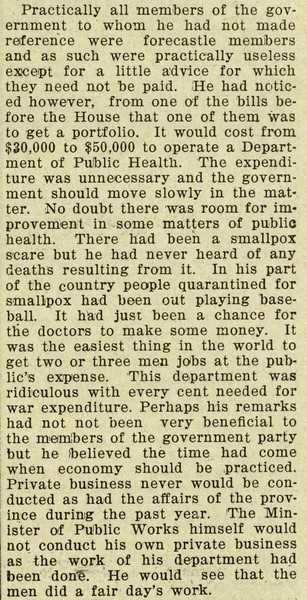
.jpg)
.jpg)
.jpg)
.jpg)
.jpg)
.jpg)




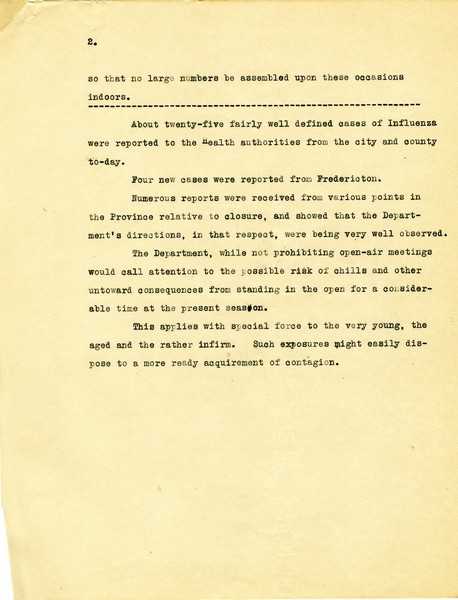

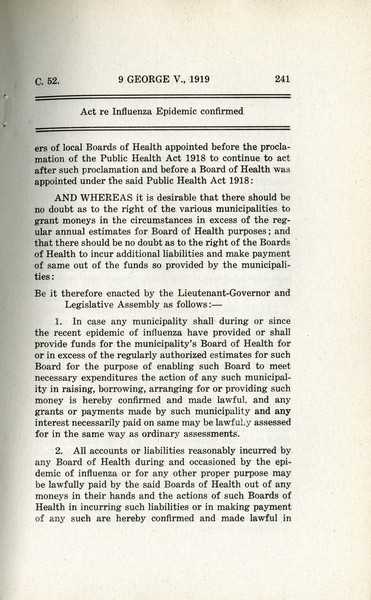
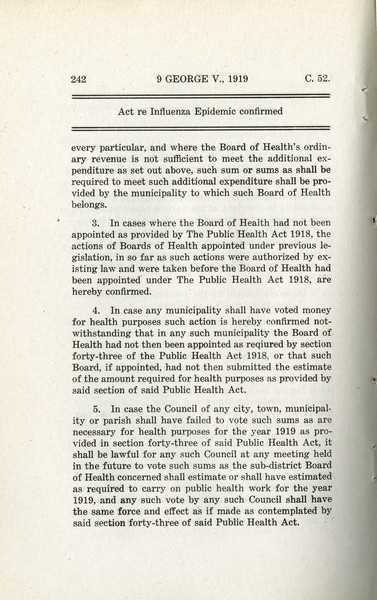
.jpg)
.jpg)
